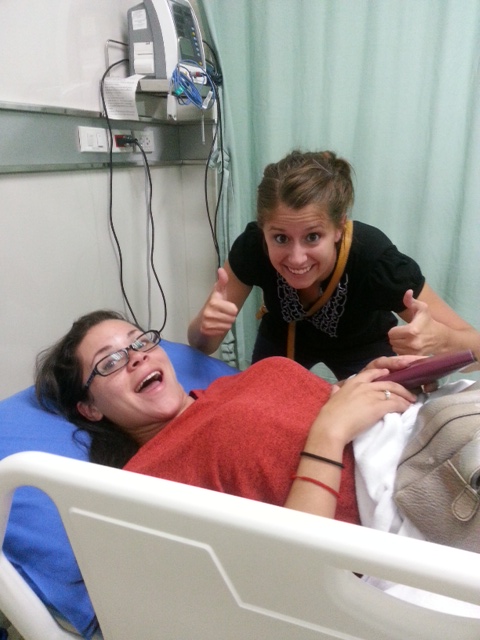Exploring the Health Care System in Thailand: 4 Important Things to Expect


Exploring the Health Care System in Thailand: 4 Things to Expect
1. Indirect prognoses
Thai language is generally indirect, so receiving medical counsel from a professional often gives the sound of uncertainty. For example, when I first went to a gastrointestinal specialist in Bangkok, I told him I was having stomach pain in my lower abdomen. The doctor pressed my stomach in a few places, listened to my gut with a stethoscope and told me “I think maybe you have stomach problem…”
“Yes, I figured that. What is the problem?”
“Maybe a stomach ulcer. I will give you some medication and if the pain is still there in a week, come back.”
This was far from what I was accustomed to in the US, where they would discuss in detail what a stomach ulcer is, how it is caused, and so on. We tend to over-explain things in the US because when we don’t, the recipient goes and spends an hour on WebMD convincing themselves that imminent death is upon them. As a result, to this day, even though I ended up doing multiple treatment plans, antibiotics, and a gastroscope, I still don’t know if I had a stomach ulcer or not.

2. Speed of care
In Thailand, there is a lack of urgency but also a short wait. To see a specialist in the States, you could end up on a waiting list that is months long, yet in Bangkok I was able to see one within the week. I probably could have seen a doctor sooner if it wasn’t for my work schedule.
At the same time, there is also what appears to be a lack of urgency for some medical issues. My friend was in a hospital after being in a serious car accident with a broken rib, which had punctured her lung. The doctors waited four days to do any surgery saying they needed her to stabilize first. Now I am not a doctor–I repeat I am NOT a doctor. However when someone has a punctured lung, I genuinely think there needs to be immediate intervention. I could be wrong, I don’t know, but my friend is now okay, so there’s that.
3. Hospital aesthetics and expenses
The international hospitals, which is where you’d end up if you’re an English speaker with a choice of where you receive medical care, are above and beyond anything I was used to seeing. They are beautiful buildings where you can see your reflection on the tile floor. They have elaborate food courts and atriums, and the one I went to even had a grand piano with a man playing it. The importance of physical appearances is big country-wide and it shows in the medical care as well. Even the local hospitals have their staff in all matching, freshly pressed uniforms and perfectly pinned hair.
Another friend was stung by a jellyfish early on in her year in Thailand. The sting became infected and doctors told her they would either do a $5000 (USD) skin graft for her leg or nothing. She ended up getting a regiment of antibiotics somewhere else, but had her mom not been a nurse to consult with, she may have never known that a skin graft was far from necessary.
4. Details
Thai people aren’t big on details, so don’t expect a lot. While dealing with my ulcer, one doctor told me to go on a ‘soft diet.’ When I asked what that consisted of, she told me udon, omelets and rice. This drastically narrowed my scope–so much so that I ruled it impossible and ignored it (not a good decision, by the way).
Overall, there are many differences between Thai medical care and the medical care you are likely accustomed to. But, the most important thing for you to do as a patient is to have trust in the medical professionals. Seriously, I know it sounds a little crazy, but at some point, despite all of the missing information and miscommunication, you just have to sabai, sabai (don’t worry, relax) and trust that things are going to be okay, because for the most part they usually will be.









I had the worst cough while in Thailand that last around 5 weeks. Finally I’d had enough and went to the hospital, where I was looked at by three different physicians, had an x-ray done, was hooked up to a nebulizer, and finally given an inhaler and some medicine and sent on my merry way with basically no instructions or information. I still have no idea if I had bronchitis, strep throat, a chronic cough, or some crazy Thailand sickness.